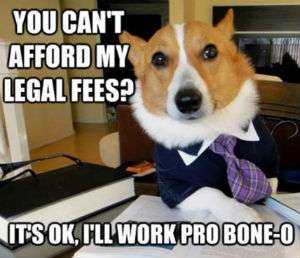He Said He Wanted a 'Lawyer[,] Dog'; The Court Ruled That Was Too Vague
The Louisiana Supreme Court denied an appeal by a defendant claiming police ignored his request for a lawyer.

"If y'all, this is how I feel, if y'all think I did it, I know that I didn't do it so why don't you just give me a lawyer dog cause this is not what's up."
That was Warren Demesme talking to the police after he voluntarily agreed to be interviewed over accusations he sexually assaulted a minor. In an opinion concurring with the Louisiana Supreme Court's decision to deny the man a writ of certiorari, Justice Scott Chricton insists that Demesme only "ambiguously referenced a lawyer."
Chricton notes that under current legal precedent set by Davis v. United States, if a suspect makes an "ambiguous or equivocal" reference to a lawyer—one where a "reasonable" cop could conclude that that the suspect only "might" be invoking his right to an attorney—police can continue their interrogation. "Maybe I need a lawyer," for example, is considered too ambiguous.
Even setting aside that this errs on the side of law enforcement rather than on the side of the accused, there is nothing in Demesme's statement that is ambiguous, assuming the officers involved understood Demesme's vernacular. (And they had to have understood—if they didn't, why would they have been assigned to the questioning?)
Chricton's argument relies specifically on the ambiguity of what a "lawyer dog" might mean. And this alleged ambiguity is attributable entirely to the lack of a comma between "lawyer" and "dog" in the transcript. As such, the ambiguity is not the suspect's but the court's. And it requires willful ignorance to maintain it.
The court ruled 6-1* to deny the writ. Only Associate Justice Jefferson Hughes voted against the denial. He has not filed a dissent yet.
*A previous version of this article incorrectly said 8-1. Apologies.


Show Comments (55)